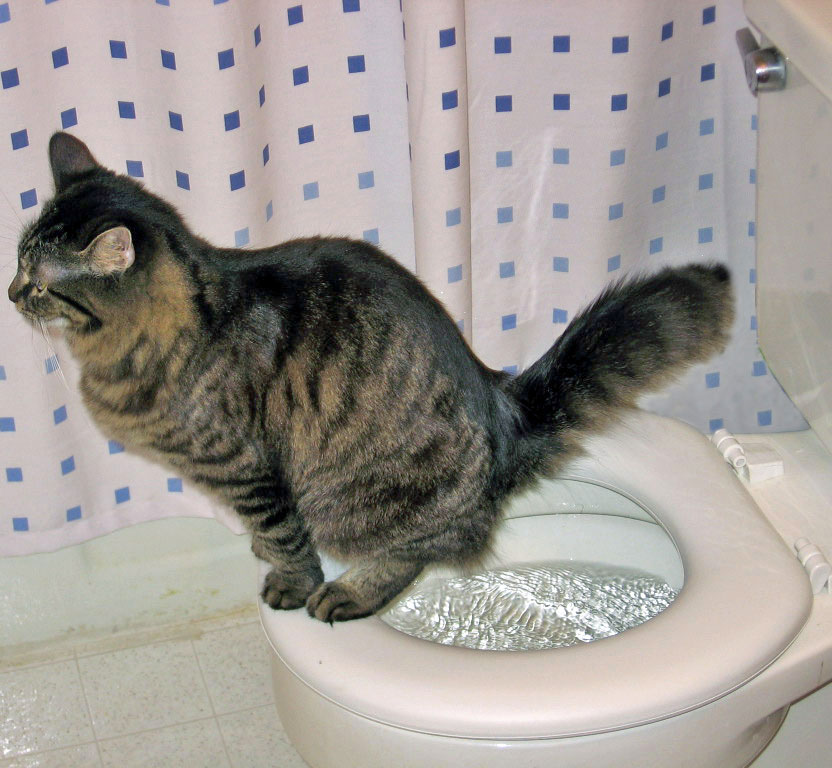They are making a number of great observations related to Don’t flush cat feces down the toilet as a whole in this content further down.

Introduction
As feline proprietors, it's necessary to bear in mind just how we throw away our feline friends' waste. While it may appear practical to purge cat poop down the bathroom, this technique can have detrimental consequences for both the environment and human health.
Alternatives to Flushing
Fortunately, there are much safer and more accountable methods to get rid of pet cat poop. Think about the following choices:
1. Scoop and Dispose in Trash
One of the most usual method of taking care of pet cat poop is to scoop it into a biodegradable bag and toss it in the garbage. Be sure to make use of a committed trash scoop and dispose of the waste without delay.
2. Usage Biodegradable Litter
Opt for naturally degradable cat trash made from materials such as corn or wheat. These clutters are environmentally friendly and can be safely disposed of in the trash.
3. Bury in the Yard
If you have a yard, consider hiding cat waste in an assigned area away from vegetable yards and water resources. Make certain to dig deep enough to prevent contamination of groundwater.
4. Install a Pet Waste Disposal System
Invest in an animal waste disposal system especially created for cat waste. These systems utilize enzymes to break down the waste, decreasing smell and environmental influence.
Wellness Risks
In addition to ecological problems, flushing cat waste can likewise present health dangers to people. Feline feces might have Toxoplasma gondii, a bloodsucker that can cause toxoplasmosis-- a possibly serious health problem, specifically for pregnant females and individuals with weakened body immune systems.
Ecological Impact
Purging feline poop introduces hazardous microorganisms and parasites into the water system, posturing a significant threat to aquatic environments. These impurities can adversely influence aquatic life and concession water top quality.
Conclusion
Accountable family pet ownership expands beyond providing food and shelter-- it additionally includes proper waste management. By refraining from flushing cat poop down the toilet and going with alternate disposal approaches, we can reduce our ecological impact and secure human wellness.
Why You Should Never Flush Cat Poop Down the Toilet
A rose by any other name might smell as sweet, but not all poop is created equal. Toilets, and our sewage systems, are designed for human excrement, not animal waste. It might seem like it couldn’t hurt to toss cat feces into the loo, but it’s not a good idea to flush cat poop in the toilet.
First and foremost, assuming your cat uses a litter box, any waste is going to have litter on it. And even the smallest amount of litter can wreak havoc on plumbing.
Over time, small amounts build up, filling up your septic system. Most litter sold today is clumping; it is made from a type of clay that hardens when it gets wet. Ever tried to scrape old clumps from the bottom of a litter box? You know just how cement-hard it can get!
Now imagine just a small clump of that stuck in your pipes. A simple de-clogger like Drano isn’t going to cut it. And that means it’s going to cost you big time to fix it.
Parasitic Contamination
Believe it or not, your healthy kitty may be harboring a nasty parasite. Only cats excrete Toxoplasma in their feces. Yet it rarely causes serious health issues in the cats that are infected. Most people will be fine too if infected. Only pregnant women and people with compromised immune systems are at risk. (If you’ve ever heard how women who are expecting are excused from litter cleaning duty, Toxoplasma is why.)
But other animals may have a problem if infected with the parasite. And human water treatment systems aren’t designed to handle it. As a result, the systems don’t remove the parasite before discharging wastewater into local waterways. Fish, shellfish, and other marine life — otters in particular — are susceptible to toxoplasma. If exposed, most will end up with brain damage and many will die.
Depending on the species of fish, they may end up on someone’s fish hook and, ultimately on someone’s dinner plate. If that someone has a chronic illness, they’re at risk.
Skip the Toilet Training
We know there are folks out there who like to toilet train their cats. And we give them props, it takes a lot of work. But thanks to the toxoplasma, it’s not a good idea.

We hope you liked our piece on How to Dispose of Cat Poop and Litter Without Plastic Bags. Many thanks for taking a few minutes to read through our content. Enjoyed reading our review? Please share it. Help someone else find it. Thanks so much for your time spent reading it.
Contact Us